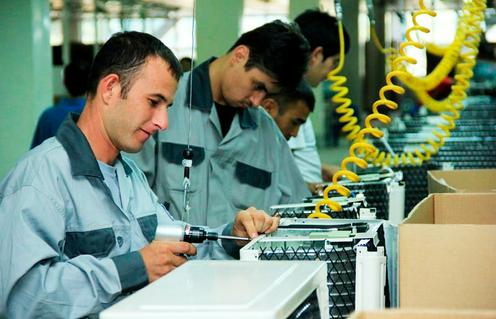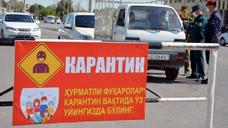At a video conference on 19 November, the president of Uzbekistan outlined the government’s key priorities for reducing poverty and ensuring employment in 2026, according to the presidential press service.
He stated that one of the main goals will be job creation in the construction sector. Next year, the country plans to implement investment projects worth 675 trillion soums (about $56.2 billion), of which 380 trillion soums ($31.6 billion) will be construction work. Plans include building apartment blocks totaling 140,000 units. Across construction and related industries, regions will be able to provide up to 35,000 jobs.
Regional initiatives will also receive special attention. For the first time, 20 trillion soums ($1.66 billion) will be allocated in 2026 to develop infrastructure in mahallas (communities). Funds will be distributed among districts based on the results of local projects.
A second priority is the development of services and tourism. Officials noted that if infrastructure is improved in 150 localities with tourism potential, the volume of services could reach 10 trillion soums ($833 million), creating 45,000 jobs. Each locality is expected to receive from 3 to 5 billion soums ($250,000–416,000). Banks will be able to offer concessional loans of up to 150 million soums ($12,500) for building guesthouses.
The president instructed the government to pay particular attention to 563 mahallas located in border areas and enclaves. One trillion soums ($83.3 million) will be directed to service and recreation projects there, including road improvements and the creation of tourist zones, retail spaces, and leisure facilities. These measures are expected to increase the incomes of 50,000 households.
A third priority is expanding permanent jobs through industrial projects. In 2026, the industrial sector plans to produce $52 billion worth of goods and launch 3,500 projects totaling $22 billion, which will create 130,000 permanent jobs. Regions will establish 50 micro-industrial centers and 1,500 small projects worth 800 billion soums ($66.5 million).
The fourth priority is increasing household income through agricultural development. Support for owners of household plots will continue. After 232,000 hectares of land were allocated, 770,000 people received opportunities to farm, though one-third face challenges due to insufficient knowledge and resources. The president proposed expanding nationwide the model used in the household farming school in Termez district, where farmers manage to harvest up to five crops a year under difficult conditions. Each region will establish at least five such schools, along with export cooperatives. The goal is to reach $4 billion in agricultural exports.
The fifth priority is strengthening social protection. In 2026, the project “Equal Opportunities – Inclusive Employment” will begin, aiming to employ 40,000 people with disabilities. They will be eligible for interest-free loans of up to 30 million soums ($2,500) from the Employment Fund. Support for families at risk of falling back into poverty will also continue.
The president instructed the government to bring at least 250,000 jobs out of the shadow economy next year. Measures will be strengthened to formalize labor relations and expand the use of the social insurance system, which provides state-funded sick leave and maternity benefits.
Mirziyoyev emphasized that all residents of mahallas must have access to complete information about funding and upcoming projects. An online monitoring platform will be created for this purpose. Results of the implemented measures will contribute to the KPI assessment of ministers and regional governors in 2026.
The meeting included reports from regional and sector leaders, as well as proposals from entrepreneurs. The president stressed the need for a systematic approach and personal responsibility among officials in achieving these goals.










